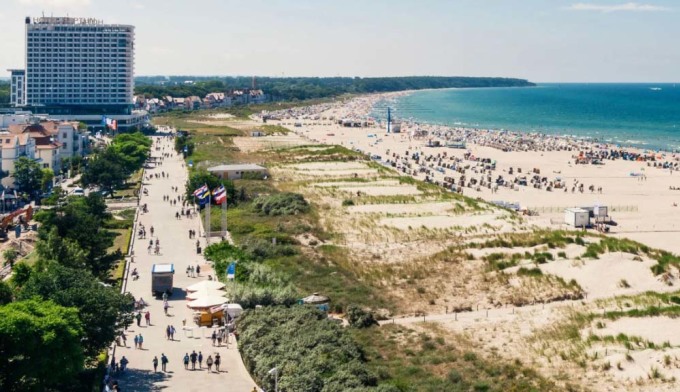
Stéphane Deschênes, the president of the International Naturist Federation (INF-FNI), emphasizes the importance of unwritten rules at naturist beaches, including refraining from staring, taking photos, or making inappropriate comments.
Rostock, a beloved tourist destination in northern Germany, boasts 15 kilometers of beach that caters to both naturists and clothed individuals. The recent ban on public nudity in certain areas has sparked mixed reactions, with some seeing it as unnecessary, while others view it as a challenge for authorities to ensure comfort and respect for the naturist lifestyle.
Public nudity has been a longstanding tradition in Germany, with many beaches, parks, and hiking trails offering dedicated spaces for naturists. However, this culture is seeing a decline in popularity among younger generations. Authorities have responded by reducing the number of designated naturist areas to match the decreasing demand.
Naumann, a spokesperson, attributes this reduction to the waning interest in naturism, with the number of areas dedicated to naturist bathers decreasing from 37 to 27.
The naturist movement, or FKK, has a rich history in Germany, dating back to the 19th century. It promotes a healthy lifestyle, a positive body image, and a harmonious relationship with nature. By embracing naturism, individuals can experience a sense of freedom and connection to the natural world.
































